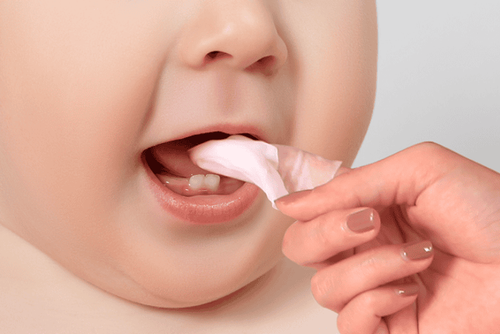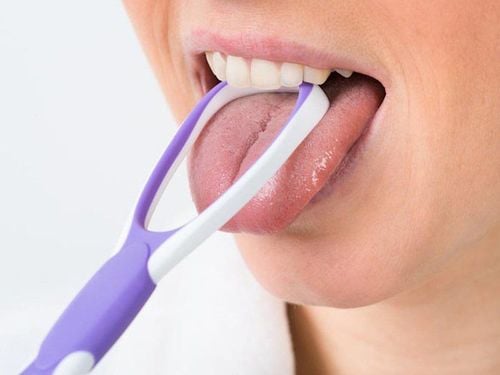This is an automatically translated article.
Article by Doctor Nguyen Thuy Dung - Pediatric Center, Vinmec Times City International Hospital.
Baby teething is when the first teeth pass through the baby's gums. Baby teeth begin to erupt when the child is 4 - 7 months old, on average at 6 months. This can cause your baby to have a fever, drooling, irritability, poor appetite, diarrhea, or fussiness. So what do parents need to do to help relieve symptoms for their children as well as take care of their children's first teeth?
1. Take care when your baby starts teething
Here are a few things to do:
Gently wipe your baby's face with a soft cloth to remove drool and prevent rashes. Clean hands before scrubbing the tongue, beneficial for the baby. Feed your baby or use a chewing aid. If the baby is uncomfortable, parents can consult a doctor to use more pain relievers for the child (usually Paracetamol or Ibuprofen for children over 6 months or some topical pain relievers). These groups of drugs have both fever-reducing and pain-relieving effects. The usual dose is Paracetamol 10-15 mg/kg/time, maximum 60mg/kg/day, Ibuprofen 4-10mg/kg/time, maximum 400mg/time. Aspirin should not be used to reduce fever or pain in children. For children with diarrhea caused by teething, they need to be rehydrated, divide many meals a day to make it easier for them to digest food.

Dụng cụ hỗ trợ để nhai
The eruption of baby teeth will end when the baby is about 24 months old with 20 teeth: 10 upper teeth, 10 lower molars. After teeth have erupted, dental care is still essential to keep your baby free of tooth decay, gingivitis, and other oral diseases.
2. Care after the baby has teeth
Care and cleaning of teeth is especially important, should be done when the baby has the first teeth. Although baby teeth will eventually fall out, decay will cause them to fall out faster, which can cause misalignment of permanent teeth.
Wipe your baby's gums and teeth with gauze or a soft toothbrush, with a small amount of fluoridated toothpaste and try not to let your baby swallow because too much fluoride can be harmful to your baby. Brush teeth at least twice a day, especially after meals. Let your child get used to flossing early when he or she has at least 2 teeth that have erupted next to each other. Encourage children to imitate their parents brushing and cleaning teeth. Do not give your baby milk or juice while sleeping. This can easily damage the enamel of your child's teeth.

Vệ sinh răng miệng cho trẻ đã mọc răng
The period of teething in children is a period when parents need to pay attention to dental care for their children, because it can affect the quality of their teeth later when the baby is an adult. In addition, parents should supplement children with supportive products containing lysine, essential micro-minerals and vitamins such as zinc, chromium, selenium, and B vitamins to help fully meet the nutritional needs of children. . At the same time, these essential vitamins also support digestion, enhance nutrient absorption, help improve anorexia, help children eat well, and develop comprehensively.
Please regularly visit Vinmec.com website and update useful information to take care of your baby and family.














